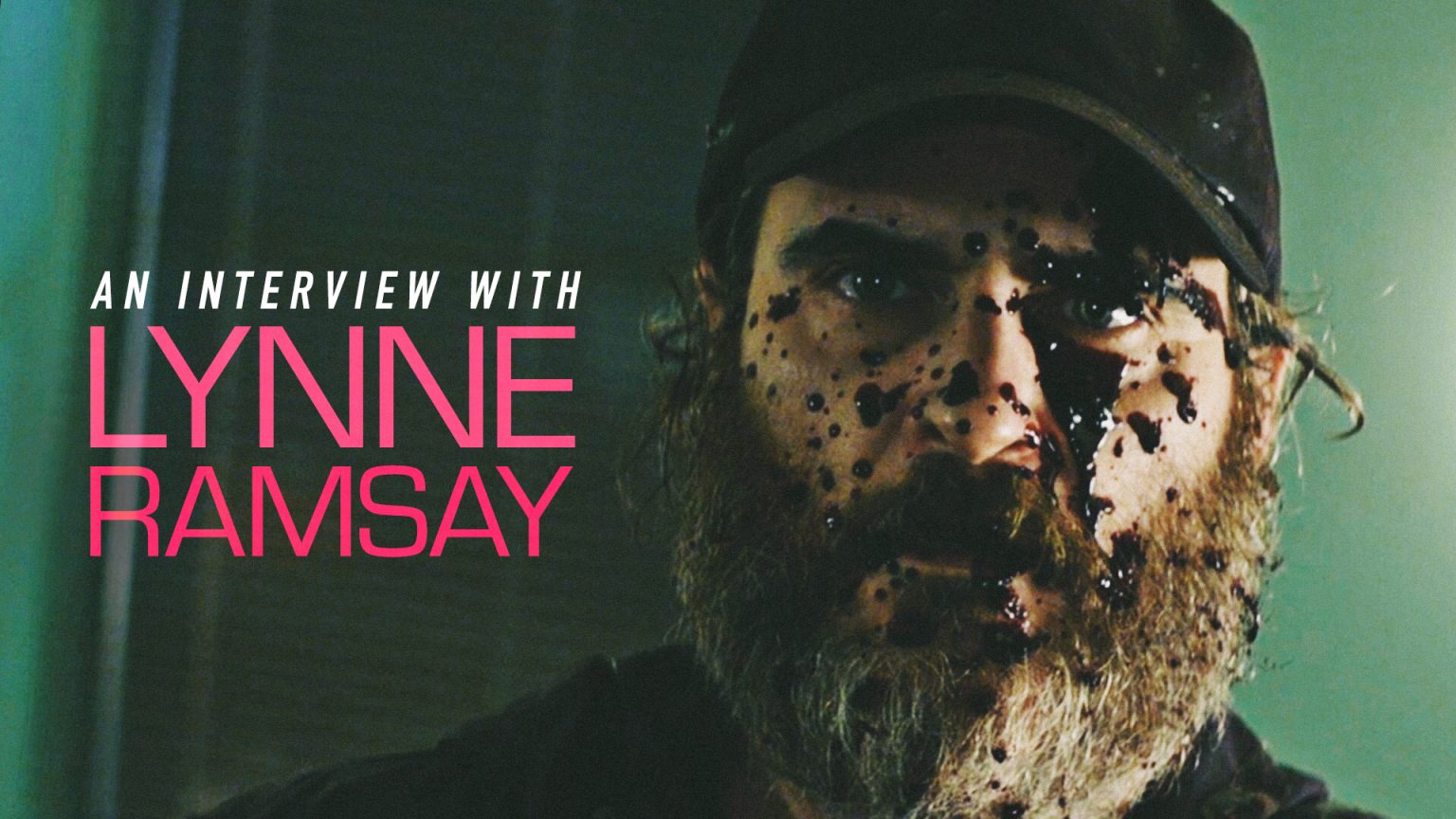It’s been a strange decade for writer/director Lynne Ramsay. In the aftermath of We Need to Talk About Kevin (2011)—a disturbing window into a teenager’s violent discontentment—Ramsay had difficulties making another movie. She signed onto direct Jane Got a Gun, starring Natalie Portman, but exited the project in the spring of 2013 over “creative differences.” The sudden departure mirrored a similar experience Ramsay had earlier in her career when she suddenly departed the production of The Lovely Bones. Once again, Ramsay had a different vision for the film than the producers. These two experiences may not be connected, but in the press, Ramsay has been dubbed “difficult” by some. It’s a label she’s called “bullshit” and it’s a topic we get into during our conversation.
But all of this has very little to do with her actual work. In You Were Never Really Here, Ramsay casts Joaquin Phoenix as a gruff, bearded veteran turned gun for hire who specializes in tracking down missing women. Based on a book by Jonathan Ames, our protagonist finds himself falling down a rabbit hole of conspiracies and self-doubt. Phoenix’s Joe is more laconic than cool and Ramsay’s assured direction propels the film forward. It’s characteristically morbid and upsetting for the Glasgow-born talent. People in the movie are unceremoniously dispatched, brutally murdered, and beaten to a pulp. Ramsay slowly unpacks the psychological complexity of Joe, as he descends into madness.
When I sat down with Lynne, we spoke about returning to cinema after a brief hiatus, what she hopes young filmmakers understand as they begin their careers, and how she believes she’s been treated unjustly in the press.
SAM FRAGOSO: In the intervening years since We Need to Talk About Kevin, there’s been a handful of stops and starts, movie-wise. Now that You Were Never Really Here is out, how do you feel?
LYNNE RAMSAY: I feel great but bereft. It’s sad finishing a movie. Like, “What am I gonna do now? What do I do after this?” Now I have to start from scratch again. This movie has been a crazy trip in a kind of perverse way.
What does that mean?
It was brutal. It was a brutal prep, a brutal shoot, a brutal edit.
So it’s all been brutal?
Yes! But in the most beautiful way, working with Joaquin was electric. We got to the end of the shoot and we were like, “Let’s make another movie!” Normally at the end of a movie you just want to hibernate for a few years.
What’s something you now know as a filmmaker that you wish you knew starting out?
I suppose I wish I knew to have fun with it more. To be like, “Fuck it. I love this.” I’ll feel so depressed in the edit because you’re so involved in it it becomes your life. I realized that you need to say, “Actually…this is great. This is super creative.” You spend too much time in your dark spaces. It’s good to enjoy it though. It took me years to remember that.
What do you think is the biggest misconception people have about you?
That I’m really dark and intense. I think my movies are comedies.
We Need to Talk About Kevin is really a riot.
(Laughs). Maybe they are dark films…but there’s some twisted humor in them. People think I’m really sitting with my head in my hands. I’m not morbid. I also hear a lot of things like, “Oh I’ve heard you’re really difficult.” And then you answer the question, “No, I’m not difficult.” Then they use that quote in the headline.
You don’t seem particularly difficult.
I think it’s the job description. It’s called DIRECTOR. Was Stanley Kubrick difficult?
In the press, I found a bizarre shift in language from director to director. David Fincher is called “meticulous” and you’re labeled as “difficult.” There’s something inherently sexist here.
Well, that’s an interesting distinction. I think it can be. I’ve seen that myself. The word director comes from a dictator, so it’s in the job description that you have to lead the ship, be the captain of the ship and make some tough decisions. Because I’m “meticulous” that doesn’t make me difficult. It just makes me care about what I do. Is that difficult? Then maybe I am. I know what I want to do. I know what I’d like to get.
Did you know what you wanted when you first started working twenty years ago?
You know, I kinda feel for filmmakers making their first feature now. I began making movies at this point in time where there was more excitement. Trainspotting had just come out. You were given some money sometimes. Now it’s harder and harder, which means you see people trying to get their first features for years. I still believe in cinema, but what’s in the cinema? It’s mostly Marvel films. Then there are some smaller, independent films shown in a limited capacity. I still believe in the spectacle of a film. The first time I saw Blue Velvet, I was still in Blue Velvet for days afterward. I was fifteen, totally transported.
Do you think your fifteen-year-old self would be happy with where your career has ended up?
Happy? I don’t know. But I feel I’ve made the films I’ve wanted to make. I haven’t seen some films I’ve made since I edited them. Then I saw Ratcatcher last year at AFI and I thought, “Yeah I’m doing something. I’m trying something.” I would’ve done things a bit differently now, but I’m happy that I went my own path. I’m not saying that’s been easy. That’s taken a toll as well. I’m still excited about making films, and more relaxed about it than when I started. I am who I am.
I’m happy that you’re relaxed these days, although your movies have the opposite effect on me.
(Laughs). I’m a relaxed person giving you a nervous breakdown in cinema.




